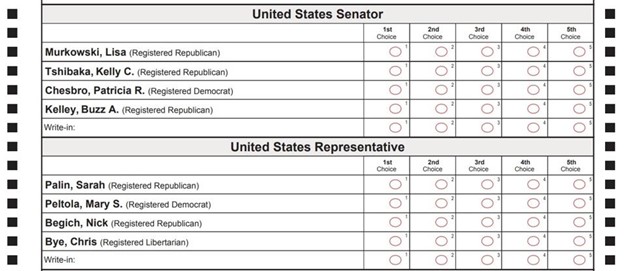I first met Meredith in 2021 at a gathering of sustainability CEOs organized by FCLTGlobal and the CFA Institute. At the time, she was CEO of the Council for Inclusive Capitalism and the Coalition for Inclusive Capitalism, two organizations that brought investor and industry leading CEOs together around sustainability reforms for market impact. With this focus on the “bottom line” business benefits of ESG, Meredith grew the Inclusive Capitalism community from 25 to nearly 600 CEOs across sectors in the three years of her leadership tenure, while undertaking market reform work around Just Transition, social disclosure, and asset owner and asset manager contractual obligations. Since then Meredith and I have been in touch across a broad range of common interests regarding companies and investors in the increasingly politicized U.S. environment. Meredith stepped back from Inclusive Capitalism late last year. This spring she took up the CEO role at FairVote, a non-partisan organization that is advancing the fastest-growing election reform in the United States. I was curious about her move from sustainability to election reform. I asked her if she would be willing to do an interview with me and she kindly agreed.

Meredith Sumpter, CEO of FairVote
Eccles: Good chatting with you, as always. But since we’re talking about elections we might as well be clear with everyone where each of us stands politically. I think folks know I’m a center-left liberal. What about you?
Sumpter: I’m not one for ideology though I do think strong, confident parties are more productive. I am for competition, choice, and a representative democracy that can deliver what most people want. That’s really what election reform is about.
Eccles: Okay, now we can jump into it! You’ve done a lot of interesting things in your career which spans both the private and public sectors. What propels you in your work?
Sumpter: I have been fortunate to get to choose what I do to make a living. Whether an opportunity to create value in the private sector or serve in the public sector, I tend to gravitate toward work that can lead to impact that scales. I also enjoy bringing different stakeholders together around value that can be created in new ways. That was where you found me with Inclusive Capitalism, Bob—working with corporate and investor leaders to demonstrate how climate change and inequality are material to their bottom lines and taking that work to governments and international institutions in addition to market players.
Eccles: Interesting that you’ve had a career spanning both the private and public sectors. You seem to be attracted to taking on challenges where economy meets society. So where does election reform come in?
Sumpter: Extreme concentration of wealth in capitalism is similar to extreme concentration of power in democracies. They both lead to market inefficiencies and ineffective outcomes for people. They both undermine dynamism at a macro level. This is what ultimately brought me to FairVote and the ranked choice voting reform the organization is rapidly advancing across the United States. Ranked choice voting brings more choice, better representation, and a political system that is more responsive to voter needs. It works for elected leaders as well by politically incentivizing them to lead, legislate, and govern in the interest of their constituents broadly. We are at a consequential inflection point for how our system functions, Bob. I believe deeply in our country’s democratic experiment and in all of our fellow Americans. And I am optimistic about what Americans can do when we feel empowered and engaged in the building of our country.
Eccles: I don’t think most people are familiar with ranked choice voting. Please explain how it works.

Alaska Sample Ballot 2022
Sumpter: Right now, voters only have one choice in every election, even when there are as many as a dozen candidates seeking a seat in Congress, or five serious candidates in a presidential primary. That makes it possible for someone to “win” with just a small number of votes, and far short of a majority. We have representatives in Congress, for example, that won a noncompetitive seat in the U.S. House with as little as 21 percent of the vote in a primary. And only about a quarter of Americans tend to vote in primary elections. Think about that: as little as 21 percent of 25 percent (five to six percent!!) of Americans are electing members to Congress to make the rules for all of us. Who are those members responsive to? They owe their seats to a minority of a minority.
Ranked choice voting results in a majority-winning candidate. In a ranked choice election, voters have the power to rank the field in order of their preference – first, second, and so on. If someone has a majority after the first round, that’s the winner, like any other election. But if no one reaches 50 percent, the lowest candidates are dropped from the race, and the voters who ranked them first have their vote count for their second choice candidate. The process continues until a candidate earns a majority of voters’ support.
Eccles: Does this mean there are no primaries?
Sumpter: You could keep the party primary and use ranked choice voting within that primary. A candidate would need to win at least 50 percent to become the Republican or Democratic nominee, which is a big step up from where we are now.
Or you could do what Alaska’s done and combine an all-party primary with a ranked choice voting general election. In the primary, every candidate is on one ballot regardless of party. Voters pick one candidate only. The top four advance to the general election in November, which uses ranked choice voting to elect the candidate with the broadest voter support.
Eccles: Thanks and makes sense. But does this have anything to do with the economy?
Sumpter: It absolutely does. Productive markets depend upon both a functioning government and an empowered society to address challenges and reach for opportunities. These are the underpinnings of market stability and economic growth. If government is not functioning and creating value for the people being governed, we should expect political and social instability, with negative market impacts. The increasing polarization of U.S. politics over the past three decades demonstrates this, as does its eroding support from U.S. citizens, whether that’s the terrible poll numbers for Congress or Presidents Biden and Trump. Conservative voters, progressive voters, independent voters—the data shows that all voter segments are frustrated with government dysfunction and believe the country is not heading in the right direction. Using private sector language: the way America’s democracy is currently working is highly unproductive and inefficient and not delivering value. It’s time for reform.
Eccles: Agreed, but it is happening?
Sumpter: It is! Alaska (since 2020) and Maine (since 2016) both use ranked choice voting statewide to positive effect for voters and elected leaders alike. The momentum of this reform is really picking up. We could see a potential tripling of states using ranked choice voting this November, Bob, with Oregon and Nevada, and possibly Colorado and Idaho, putting the reform on the ballot.
Eccles: Very encouraging! But to go back in time a bit, you grew up in Alaska, right?

Meredith’s four school-aged children running on the beach in Homer, Alaska in 2022
Sumpter: Indeed I did! I am the proud granddaughter of two directional drillers in the oil and gas industry. Both of my grandfathers got through the Great Depression and went into O&G after the Second World War, a sector which offered good jobs even for those without much or any secondary schooling. Opportunity called in the mid-1960s when oil was discovered on Alaska’s North Slope; my grandfathers moved their families from Texas and Louisiana to the Arctic. My parents met as teenagers at a joint gathering (Southerners find each other pretty quickly in cold temperatures). And the rest is history.
My father is a grocer, and I grew up helping my family run small general stores in communities across Alaska. You can imagine the logistical challenges trying to get fresh produce to rural towns a four-hour drive from anywhere, notably in the winter months, to people with a wide range of opinions. But it was this experience that greatly informs who I am and the way that I operate as a human being. You’ve got to remain focused on delivering value to your customers. And you need all kinds for a democratic society and community to work.
Eccles: Interesting. Do you think there’s something about Alaska that made it the second state to adopt ranked choice voting?
Sumpter: No question about it. In many ways, I see adoption of ranked choice voting in Alaska as helping to underpin that sense of collective interest in and responsibility toward one another that formed my upbringing—as an Alaskan and an American—we respect each other and our differences while finding ways forward together. And the results are clear, reflecting the political diversity of voters across the state. Alaskans through ranked choice voting elected one of the most conservative Governors in the country with Mike Dunleavy; a moderate Republican Senator with Lisa Murkowski; and a moderate Democratic House Representative with Mary Peltola, the first Alaskan Native elected to Congress with a campaign focused on Fish, Family and Freedom.

Alaskan with Fish
Of course I have to share with you the obligatory “Alaskan with fish” picture. My sweet husband Ryan and I take our kids back to Alaska and the Pacific Northwest every summer (some winters, too!) to be with family.
Eccles: Nice to see you planting your Alaskan roots in your East Coast children! Now please tell me more about FairVote and ranked choice voting.
Sumpter: What energizes me about FairVote is the opportunity to be part of advancing a reform that can meaningfully and pragmatically improve the functioning of our representative democracy at a time of acute risk. I think this is incredibly important for the private and public sectors.
Our current electoral system, gerrymandered districts, and campaign finance laws make it difficult for elected officials to work on behalf of their constituents. Rather than getting things done, elected officials are often stuck in an election system that rewards them for keeping the other side from getting any “wins.” The loser? The American people. Political and social implications aside, there are country performance implications of these perverse incentives.
Eccles: Sad but true. However, this polarization seems to be pretty baked in by now. What is it about FairVote that makes you think you can ameliorate this?
Sumpter: Unlike other proposed reforms, ranked choice voting can be pragmatically adopted within our current election system. And it works! The data clearly show voters having greater choice, better representation, and higher levels of engagement where ranked choice voting is used. It also empowers elected officials to get things done in the interests of their constituents, rather than be beholden to a narrow party base.
In leading FairVote, I get to roll up my sleeves with leaders across the country and focus on changing the structure of the election system so that candidates win and retain their seats through being broadly accountable to their constituent base. With ranked choice voting, candidates have to compete for votes outside of their narrow party base to win. This means more civil and less toxic campaigns focused on the issues, because candidates need to be voters’ second or third choice if not their first choice in order to win.
Eccles: I can’t help but ask how ranked choice voting applies in Presidential elections.
Sumpter: This is the year to ask that question, Bob. Markets and political leaders are worried right now about spoilers and third-party candidates running for president. Ranked choice voting solves this problem. Multiple candidates can run, voters can rank their choices, and the winner is always the person with 50 percent of the vote. Just imagine the potential instability if the White House goes to either party based on winning two or three close swing states without 50 percent, and with an independent whose vote total exceeds the margin in those states.
Eccles: Makes sense but humor me with a hypothetical to illustrate this in the upcoming election.
Sumpter: Okay, how’s this? Imagine if Michigan puts President Trump over 270 electoral votes, but he’s only won 45 percent in the state. Biden has won 44, and Robert F. Kennedy Jr. has won 11 percent. With ranked choice voting, those Kennedy voters would be able to express their preference between the two strongest contenders, Biden and Trump. We don’t know who they’d pick, but we know they wouldn’t accidentally help elect their least-favorite candidate.
This could be adopted state-by-state within the Electoral College framework; Maine and Alaska already do this. Voters there don’t need to worry about “wasting” their vote or playing “spoiler” – and frankly, neither do the parties or candidates.
Eccles: I see your point but if those Kennedy voters swung towards Biden, I can already hear the refrains of “Stolen Election!” from Trump and many of his supporters. I don’t think there’s any kind of electoral reform that will deal with the irrational. But putting that aside, you are advancing an election reform that seems to disrupt status quo political power. That can’t be too popular in some political circles.
Sumpter: We can all see that the status quo politics simply isn’t working for the American people. Serious governing that tackles the real problems everyday voters want to see solved will only emerge when our elected officials from all parties are incentivized to sit down and work together. Our current system punishes elected officials for working outside the primary base that elevated them to power. And frankly, the behaviors that a ranked choice voting election incentivizes are the behaviors we want to see in our legislators – talk to everyone (not just their base), build broad coalitions, seek compromise to get things done and score wins for the American people.
Naturally, its momentum as the fastest-growing voting reform has generated some opposition from those on either extreme who think the current system works really well for them. They’re counting on the current system to help them keep power even though many can’t really win elections with 50 percent – even in their own party primaries. They want to hold power with just a fraction of a fraction of voter support–and the current system allows them to do that. That’s not good for Americans, it’s not good for markets, and it doesn’t lead to political stability or enlightened, fulsome leadership.
Just look at the stream of U.S. leaders from both parties who are departing Congress, some of them before their term ends, out of frustration with their inability to get things done. This is about government functioning. This is about stability, and lasting and impactful legislation rather than whipsawing between executive orders when new presidents (or even governors) are elected. This is both a systems inefficiency and productivity issue that should concern private sector leaders.
Eccles: Does ranked choice voting favor one party over the other?
Sumpter: This reform favors voters. It allows for a fulsome representation of voter will. It has a neutral impact on parties. Bob, this isn’t a partisan issue. Lots of Republicans and Democrats support ranked choice voting and believe that it helps them win and govern with real majorities. Arkansas Governor Asa Hutchinson (R), Louisiana Senator Bill Cassidy (R), West Virginia Senator Joe Manchin (D), Maine Senator Angus King (I), Colorado Senator Michael Bennet (D), and Idaho Governor Butch Otter (R) are just a few political leaders backing ranked choice Voting. Former Presidential candidate Andrew Yang is a big supporter and on my Board. As is our Chair Harvard Professor Danielle Allen, one of the nation’s foremost visionaries on electoral reform. Ranked choice voting is successful in states of all political leanings including at the municipal level in red states like Utah and blue states like Minnesota and New York. In addition to Maine and Alaska, voters are pushing for statewide ballot initiatives this year in Oregon, Idaho, Colorado, Nevada and Washington, D.C
Ranked choice voting has also been used in a range of party primaries. It’s been used in seven states and territories’ presidential primaries in 2020 and 2024, on both the Democratic and Republican sides. Virginia Republicans have used it to nominate several candidates over the last few years, including now-Governor Glenn Youngkin in 2021.

Meredith leading a discussion with ranked choice voting movement partners at an April 2024 FairVote Strategy Summit
Eccles: Thanks, Meredith, I’ve learned a lot. Given the benefits of ranked choice voting for our country’s economic health, how best can the business community support the important work you’re doing?
Sumpter: Right now only a tenth of a tenth of a percent of all U.S. philanthropic giving goes to elections and democracy reform. And yet it is the biggest looming threat facing us. Stable markets require a stable, functioning government with consistent policies over the long term. It’s job one. We need everyone who cares about dynamic markets to join us and invest in this reform to help undo the partisanship and dysfunction that is undermining our performance and long-term stability. Reach me if you want to make systemic impact through philanthropic investment.
Eccles: Any upcoming opportunities for people to meet you and learn more about FairVote?
Sumpter: Yes, there is! We are holding the FairVote Awards fundraiser in New York City on June 3 to meet the Republican, Democrat and Independent leaders working to make this reform a reality across the United States. I invite all who are interested to join us. Whatever your political leanings, we are all in for ranked choice voting because this pragmatic reform delivers value for every American.
Eccles: I really appreciate the work you and your colleagues at FairVote are doing. This is something America desperately needs.
Sumpter: I really appreciate you, Bob. Thanks for helping me to get the word out about ranked choice voting! It works. It wins. The momentum is on our side. And, with the private sector weighing in, we will see an acceleration of reform adoption across states, cities and within the political parties–all for a more functional government that meets the needs of people. It’s time to get things done.
SUBSCRIBE TO OUR NEWSLETTER
Subscribe our newsletter to receive the latest news, articles and exclusive podcasts every week


